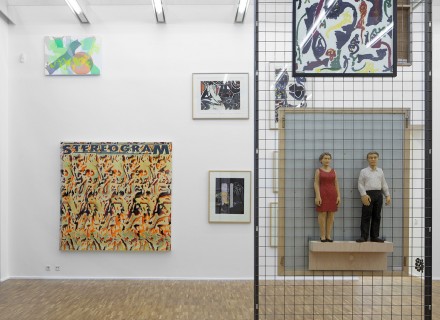International symposium “Collecting in Time” with lectures, workshops, and panel discussion
Due to the proliferation of globalization and its concurrent technological developments art museums are currently facing new challenges. The ways in which they perform their educational mission and social responsibility are widely discussed. What could adequate responses to these socio-political shifts and the innovations of the digital age look like? How can the work of the museum be adapted to meet the demographic changes as well as social and cultural developments caused by migration and increasing transcultural connectivity? What are possible reactions to the intensified economisation of society, an increasingly event-based concept of culture, and tendencies of nationalisation in cultural politics?
These questions not only apply to temporary exhibition projects and mediation/educational programmes but also especially to the ways in which museums handle their collections. The symposium Collecting in Time seeks to link the current discussions about the role of art museums with a (re-)consideration of acquisition policies and new perspectives on public collections as the constitutive basis of the institution.
Programme
Panel 1: The Public Collection
This panel deals with the ways in which museums stage their collections publicly and make them accessible. What kinds of publics can be constituted by working with collections? How can museums provide different modes of access to their holdings? How can the values of an open society be performed and how can traditions be questioned with regard to their contemporary potential? Which sorts of activation are stimulated by presentations of the collection? Is it possible to think of collections as participatory?
Keynote lectures followed by workshops:
Dorothea von Hantelmann (Berlin): Forms of Participation. Attention Economies and the Becoming-Event of the Exhibition
Lara Perry (Brighton): How Public Can It Be? Working on Assemblies and Collections
Liz Glass (Minneapolis): As I Live and Breathe: Contemporary Collections Online
Panel 2: Global Effects: Migration and Transculturality
Discussions in this panel reflect the ways in which global entanglements impact the collection practices of museums. How can postcolonial approaches be incorporated into the policies of collecting in museums of modern and contemporary art? What can museums do to foster new perspectives on their collections and to reassess their holdings? In how far do collections bear hidden conflicts and how could this affect their presentation? Is it possible to think of ‘other’ forms of collecting?
Keynote lectures followed by workshops:
Melanie Roumiguière (Berlin): Exploring Resonances – the Collection Policies of the National Museums of Berlin from the Perspective of the National Gallery
Ruth Noack (Berlin): Collecting Elsewhere
Nora Sternfeld (Vienna): Sedimented Conflicts and Other Archives – Challenging Collections
Panel 3: Moving Collections
This panel considers the ways in which the cultural, institutional, regional and transregional interests and politics impact collection policies. How are specific localities consolidated in collections, and how can they be placed in broader contexts? Can translocal and transdisciplinary collection strategies reinforce the importance of the museum as a public space? What are the limits of expanded concepts of collecting?
Keynote lectures followed by workshops:
Marion Ackermann (Dresden): International/Interdisciplinary: 500 Years of Collecting for the Future
Aleksandra Kędziorek (Warsaw): Becoming a Museum (Collection)
Nick Aikens (Eindhoven): Deviant Museums? Notes on collections, constituencies and constitutions
Concluding discussion with all participants moderated by Beatrice von Bismarck

